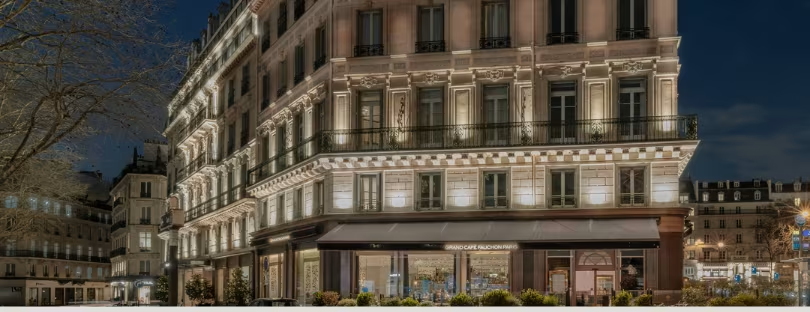
Why Luxury Travelers Are Turning to Boutique Hotels
Fauchon L’Hôtel Paris has just taken the pulse of luxury travel advisors, and the results reveal a clear shift in what high-end travelers value most. The message couldn’t be more direct: today’s guests don’t want “cookie-cutter” brand uniformity. Instead, they’re searching for an authentic sense of place that reflects the destination.
This marks a striking departure from the old hotel playbook, where consistency across continents—identical bedding, décor, and even carpeting—was once a selling point. Now, sameness feels sterile, especially to luxury clients looking for experiences that feel genuinely local.
Why Authenticity Is Winning
According to the survey, 100% of advisors agreed that authenticity beats standardized design. That puts boutique properties like Fauchon L’Hôtel Paris, with its unapologetically Parisian style and its much-talked-about Gourmet Bar, in the sweet spot. It’s not about ticking boxes; it’s about crafting an atmosphere that makes guests feel immersed in Paris rather than just another international hotel lobby.
This resonates with other recent findings across the industry. Skift’s 2024 Global Travel Trends Report also noted that “immersive, local-first experiences” are now a top motivator in luxury travel bookings. The same trend is being embraced by players like Belmond and Six Senses, which foreground cultural storytelling, design rooted in local history, and community-driven experiences.
Location vs. Service: What Really Gets Remembered
The survey also highlights a fascinating disconnect. Location and service were ranked as the two most important factors when choosing a hotel (97.5% and 82.5% respectively). Yet when clients reported back, service was remembered three times more often than location.
This suggests that while travelers initially book based on practicalities like where the property is situated, what leaves the deepest impression is how the staff make them feel. In fact, six in ten travelers commented on the warmth of service, while only two in ten mentioned the “great location.”
This insight aligns with Accor’s own research showing that “human touchpoints” are increasingly the biggest differentiator in luxury stays, even more than amenities or square footage.
Perks That Matter Most
When it comes to promotions, the winners are clear. Complimentary nights top the wish list (70%), closely followed by VIP amenities. Traditional incentives like discounts or loyalty points are less powerful—further proof that value in luxury travel is now measured in exclusivity and experiences, not just cost savings.
Interestingly, the once-mighty loyalty program has lost much of its influence. Only 1.3% of clients explicitly ask for loyalty-linked hotels, and more than a third don’t care about them at all. Compare this with the Marriott Bonvoy era of the 2010s, when loyalty points were a decisive driver of luxury bookings, and it’s clear the pendulum has swung.
Social Media Influence: Still Limited, But Growing
Despite the Instagram effect on mainstream travel, luxury travelers seem less swayed. Just 30% of advisors reported that clients definitely request hotels seen on social media, though another 11% say the trend is picking up. That’s modest compared with mass-market travelers, where destinations like Santorini or Bali have been propelled by Instagram alone.
For boutique hotels like Fauchon, this could mean an opportunity: social content works best when it tells a unique story. And in a market increasingly allergic to generic aesthetics, visually distinct properties have an edge.
Where Fauchon Fits in the Bigger Picture
Fauchon’s survey results don’t just reaffirm what many in hospitality already suspect—they provide data that boutique hotels can leverage. The property is already responding, preparing Festive 2025 packages with destination-led experiences and soon-to-be-announced spa upgrades.
It’s a smart move. Across the market, brands like Aman, Rosewood, and Belmond are investing in hyper-local positioning, from indigenous-inspired wellness programs to culinary partnerships with local producers. Fauchon’s Parisian identity is its competitive weapon: while global giants chase scale, boutique hotels that stay authentic can own the emotional side of luxury travel.
Conclusion: The New Luxury Standard
What this survey underscores is a broader market truth—luxury travel is shifting from sameness to singularity. Guests don’t want to feel like they’ve stayed in the same room in five different countries. They want hotels that reflect culture, design, and community, with standout service that lingers longer in memory than even the best skyline view.
Fauchon L’Hôtel Paris is not alone in betting on authenticity, but it is among the clearest examples in Europe. As loyalty programs fade and service becomes the new currency, boutique properties with strong local identity are positioned to outperform the big-box luxury players who still rely on brand uniformity.
For luxury travel, the future isn’t one-size-fits-all. It’s one-place-fits-perfectly.









